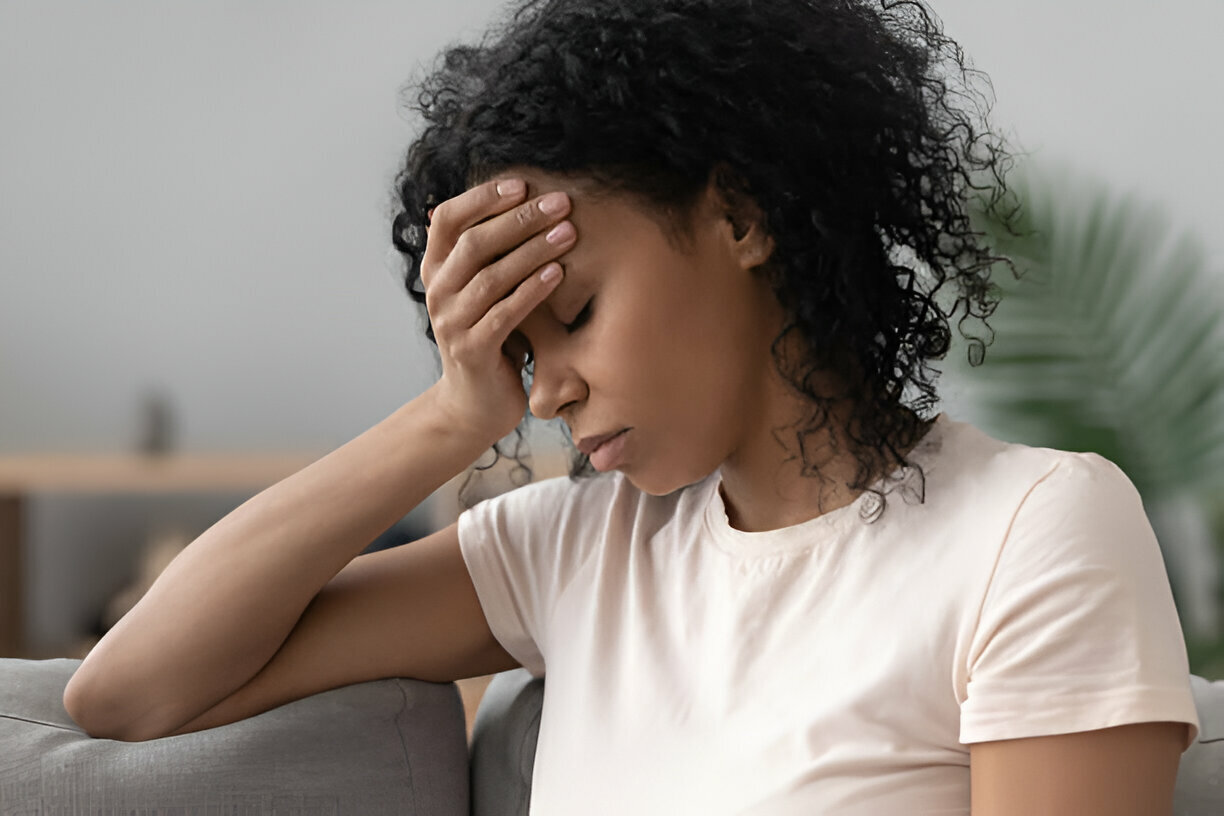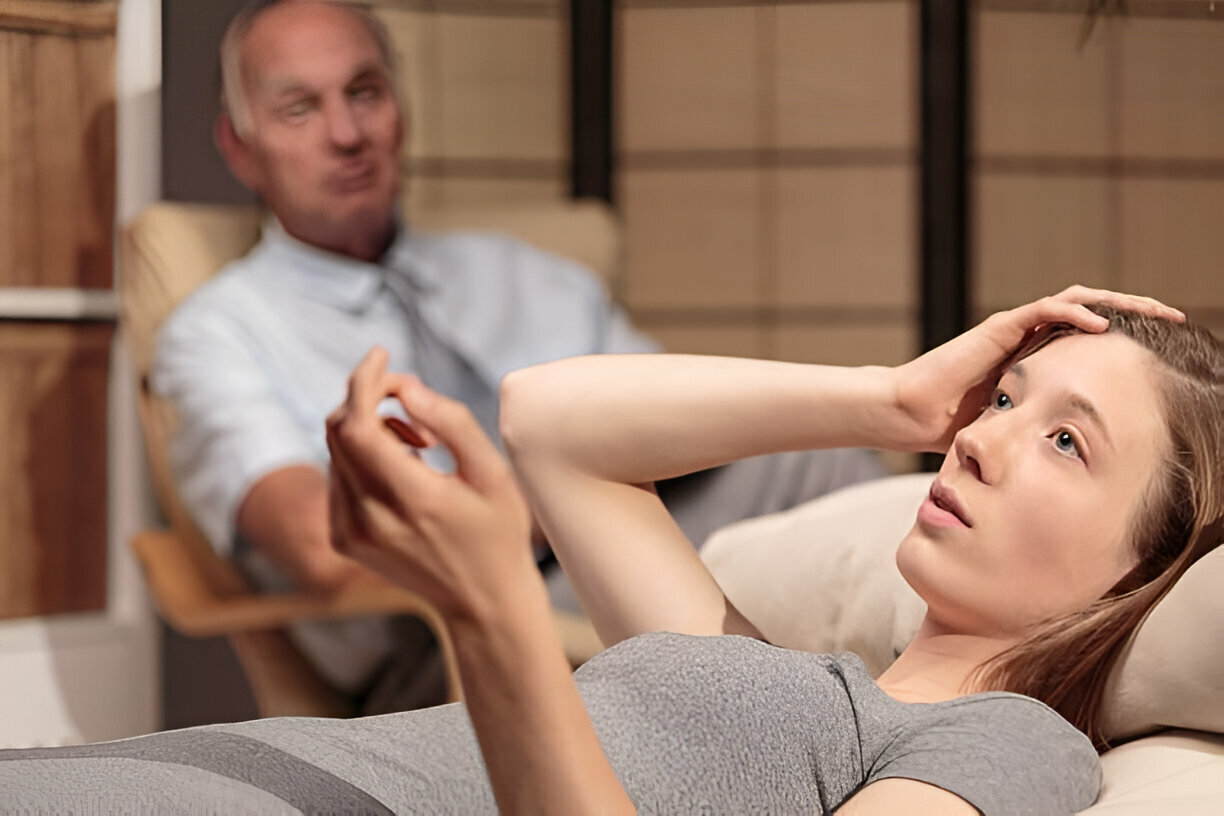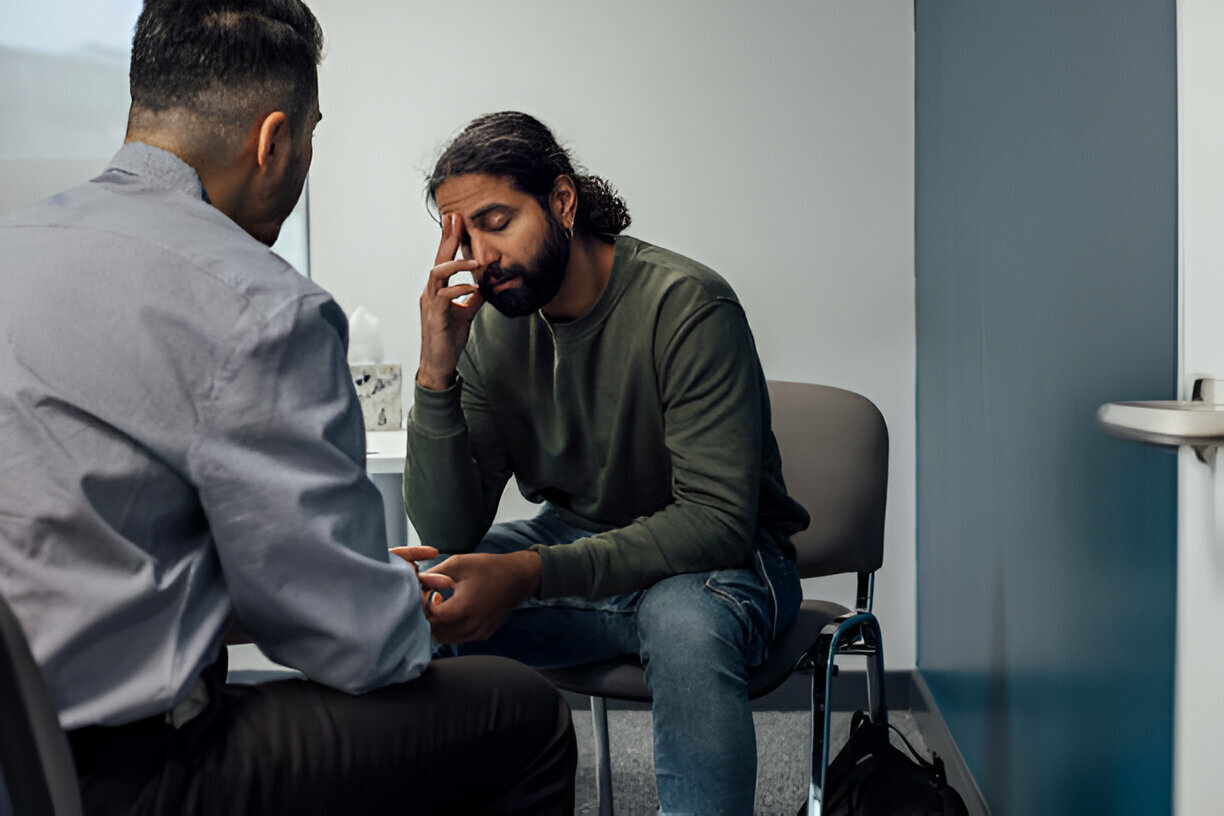For many, bedtime is a moment to unwind and rest after a long day. However, for some, this quiet time triggers an overwhelming rush of anxiety. Sleep anxiety is a common but often misunderstood condition that can significantly impact mental and physical well-being. At Foundations Group Behavioral Health, we provide specialized care through programs like Psychiatric Day Treatment, Sleep Disorder Treatment Program, and our Outpatient Mental Health Program, helping individuals understand and overcome the challenges of sleep anxiety.
What Is Sleep Anxiety?
Sleep anxiety is the intense feeling of worry or dread that arises when trying to fall asleep. It can manifest in various ways, including racing thoughts, a rapid heartbeat, or difficulty calming the mind. Unlike occasional difficulty falling asleep, sleep anxiety becomes a persistent issue, creating a cycle where fear of not sleeping makes sleep even harder to achieve.
Left unaddressed, sleep anxiety can lead to chronic insomnia, reduced productivity, and long-term mental health challenges.
Why Do You Experience a Rush of Anxiety at Bedtime?
Several factors contribute to this phenomenon, many of which are tied to the interplay between mental health and sleep:
1. Mental Overload
During the day, distractions may keep intrusive thoughts at bay. At night, the lack of external stimulation can amplify worries, making it difficult to relax.
2. Stress Hormones
Cortisol, the body’s primary stress hormone, can spike at night due to unresolved stress or poor sleep hygiene, creating physical symptoms of anxiety.
3. Negative Sleep Associations
If you’ve experienced past struggles with insomnia or disturbing dreams, your brain may associate bedtime with stress or fear, perpetuating a negative cycle.
4. Co-occurring Conditions
Mental health conditions like depression, anxiety disorders, or bipolar disorder often include sleep disturbances as symptoms. A tailored Outpatient Mental Health Program can address these overlapping issues.
5. Physical Health Factors
Issues like chronic pain, restless leg syndrome, or other physical ailments can create discomfort, which may exacerbate bedtime anxiety.
Understanding the root cause is the first step toward overcoming sleep anxiety, and professional assessment through a Behavioral Health Treatment Center in Massachusetts can make a difference.
What Happens in the Body During Sleep Anxiety?
When sleep anxiety strikes, the body goes into a heightened state of alertness, triggering the “fight or flight” response. This physiological reaction is controlled by the sympathetic nervous system, which prepares the body to respond to perceived danger. However, in the case of sleep anxiety, the body’s alarm system is activated at a time when it should be winding down for rest.
Here’s what happens:
- Increased Heart Rate: As anxiety sets in, the heart rate may spike, making it harder to relax and fall asleep.
- Heightened Cortisol Levels: Cortisol, the body’s primary stress hormone, increases during anxiety, making it difficult for the body to enter a restful state.
- Shallow Breathing: Anxiety often causes shallow, rapid breathing, which can lead to further feelings of panic or unease.
- Muscle Tension: As the body prepares for action, muscles may tense up, making it uncomfortable to rest.
Common Triggers of Sleep Anxiety
Sleep anxiety doesn’t happen in a vacuum. Several factors contribute to the onset and persistence of bedtime anxiety, including:
- Stressful Events: Work-related pressures, personal challenges, or financial worries can cause racing thoughts at night, leading to anxiety when it’s time to sleep.
- Poor Sleep Hygiene: Irregular sleep patterns, excessive screen time before bed, or consuming caffeine late in the day can interfere with the body’s natural sleep cycle, causing anxiety around bedtime.
- Trauma and PTSD: Past traumatic experiences can lead to fear associated with sleep. For individuals with post-traumatic stress disorder (PTSD), sleep is often linked with nightmares or flashbacks, which can cause significant anxiety when trying to rest.
- Mental Health Conditions: Individuals with anxiety disorders, depression, or bipolar disorder often experience increased anxiety at night as their minds become overwhelmed with emotions or negative thoughts.
- Health Conditions: Chronic pain, restless leg syndrome, and other physical discomforts can also trigger anxiety when lying down to sleep.
The Connection Between Sleep Anxiety and Mental Health
The relationship between sleep and mental health is a two-way street. Poor sleep exacerbates existing mental health issues, while untreated mental health conditions can disrupt sleep patterns. For example:
- Depression: Individuals with depression often experience hypersomnia (excessive sleeping) or insomnia. Sleep anxiety can emerge as a result of difficulty falling or staying asleep.
- Generalized Anxiety Disorder (GAD): Nearly 90% of individuals with GAD report sleep disturbances, with racing thoughts and physical symptoms of anxiety peaking at night.
- Bipolar Disorder: Sleep disturbances, such as insomnia or hypersomnia, are common during manic or depressive episodes.
Our Depressive Disorder Treatment Program and Behavioral Health Treatment Programs are designed to address these underlying conditions, providing a comprehensive approach to recovery.
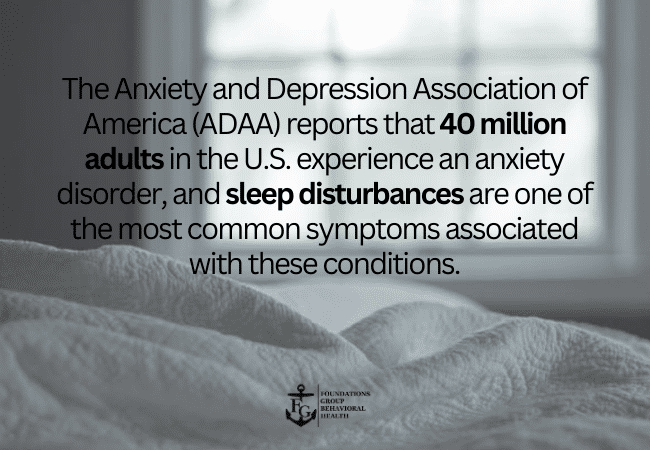
The Connection Between Sleep Anxiety and Sleep Disorders
Sleep anxiety and sleep disorders are closely linked. While sleep anxiety makes it harder to fall asleep, untreated anxiety can also lead to or exacerbate sleep disorders, creating a cyclical problem.
Some common sleep disorders associated with anxiety include:
- Insomnia: One of the most common outcomes of sleep anxiety, insomnia is characterized by difficulty falling asleep, staying asleep, or waking up too early. The anxiety surrounding sleep can prevent the body from entering a restful state, making it harder to maintain a consistent sleep pattern.
- Restless Leg Syndrome (RLS): RLS is a condition where individuals experience an irresistible urge to move their legs, usually at night. Anxiety can worsen RLS symptoms, creating even more difficulty when trying to fall asleep.
- Obstructive Sleep Apnea (OSA): Although not directly caused by anxiety, sleep apnea can be worsened by it. Anxiety can increase muscle tension, leading to the relaxation of muscles in the throat, which can exacerbate sleep apnea symptoms.
How Sleep Anxiety Impacts Daily Life
Chronic sleep anxiety doesn’t just affect nights; its effects seep into daily life, leading to:
- Fatigue: Lack of restful sleep can cause persistent tiredness and reduced focus.
- Emotional Dysregulation: Sleep deprivation can heighten emotions, making individuals more reactive to stress.
- Physical Health Issues: Over time, poor sleep contributes to weakened immunity, cardiovascular problems, and weight gain.
Without intervention, this cycle can feel impossible to break. Foundations Group Behavioral Health offers evidence-based treatment programs to help individuals restore healthy sleep patterns and improve overall well-being.
Managing Sleep Anxiety: What You Can Do
There are several strategies to combat sleep anxiety and reclaim restful nights:
1. Practice Good Sleep Hygiene
- Maintain a consistent bedtime and wake-up schedule.
- Avoid caffeine, alcohol, or heavy meals in the evening.
- Create a relaxing bedtime routine, such as reading or meditating.
2. Address Underlying Mental Health Conditions
Sleep anxiety often stems from untreated mental health issues. Seeking help through programs like our Psychiatric Day Treatment can address these root causes effectively.
3. Cognitive Behavioral Therapy for Insomnia (CBT-I)
CBT-I is a proven therapeutic approach to address the thoughts and behaviors contributing to sleep anxiety. Foundations Group Behavioral Health incorporates evidence-based therapies like CBT-I into our Sleep Disorder Treatment Program.
4. Explore Relaxation Techniques
Techniques like progressive muscle relaxation, mindfulness, and deep breathing exercises can help calm the body and mind before bedtime.
5. Seek Professional Treatment
If self-help strategies aren’t enough, professional support can provide the structure and tools you need to overcome sleep anxiety. Programs like our Outpatient Mental Health Program offer flexible, personalized care.
The Importance of Seeking Professional Help
If sleep anxiety is affecting your ability to rest and impacting your daily life, it’s essential to seek professional help. Sleep anxiety can be treated effectively with a combination of behavioral therapy, lifestyle changes, and sometimes medication. At Foundations Group Behavioral Health, we offer a range of treatment programs tailored to address both sleep anxiety and its underlying causes.
- Psychiatric Day Treatment: Intensive daytime care that can help you explore the mental health issues contributing to sleep anxiety and develop strategies to cope with anxiety and improve sleep.
- Half Day Treatment Program: Flexible treatment designed for individuals who need help managing sleep anxiety but have daytime commitments, offering both therapeutic support and practical solutions for improving sleep hygiene.
- Outpatient Mental Health Program: For individuals who need ongoing support, this program provides personalized care to help manage anxiety and other co-occurring mental health conditions.
- Sleep Disorder Treatment Program: Specialized care for individuals experiencing sleep-related issues like insomnia, sleep apnea, and restless leg syndrome, with a focus on helping you develop healthier sleep patterns.
Treatment Options at Foundations Group Behavioral Health
At Foundations Group Behavioral Health, we offer a range of programs to address sleep anxiety and its underlying causes:
- Psychiatric Day Treatment: Intensive daytime care with a focus on mental health and sleep-related challenges.
- Half Day Treatment Program: A more flexible option for those balancing other commitments.
- Outpatient Mental Health Program: Ongoing support for individuals looking to manage sleep anxiety and co-occurring conditions.
- Sleep Disorder Treatment Program: Specialized care tailored to help individuals overcome sleep-related issues and establish healthy habits.
- Behavioral Health Treatment Programs: Holistic programs designed to address the emotional, physical, and psychological aspects of sleep anxiety.
When to Seek Help
If sleep anxiety is disrupting your life, it’s important to seek professional support. Left untreated, it can lead to chronic insomnia and worsen existing mental health conditions. At Foundations Group Behavioral Health, our team of compassionate professionals is here to help you reclaim restful nights and a balanced life.
Take the Next Step Toward Better Sleep
Sleep anxiety doesn’t have to control your nights or your life. With the right tools, treatment, and support, you can find relief and restore healthy sleep patterns. Contact Foundations Group Behavioral Health today to learn more about our Behavioral Health Treatment Center in Massachusetts and explore programs like our Sleep Disorder Treatment Program and Psychiatric Day Treatment. Contact us today at 508.388.5324 to book your first session and begin your journey toward a more mindful future.
FAQ on Sleep Anxiety
What causes sleep anxiety?
Common causes of sleep anxiety include high levels of stress, mental health conditions such as anxiety or depression, poor sleep habits, trauma, and certain health conditions that affect sleep. These triggers can create a cycle of anxiety that worsens sleep difficulties.
How does sleep anxiety affect my health?
Chronic sleep anxiety can negatively impact both mental and physical health. It can lead to mood swings, difficulty concentrating, weakened immune function, and an increased risk of conditions such as heart disease and obesity.
What are the most common sleep disorders linked to anxiety?
Sleep anxiety is often linked to disorders such as insomnia, restless leg syndrome, and obstructive sleep apnea. Anxiety can either trigger or worsen these conditions, making sleep even more difficult.
How can I treat sleep anxiety?
Treatment options for sleep anxiety include cognitive behavioral therapy (CBT), relaxation techniques, lifestyle adjustments, and, in some cases, medication. At Foundations Group Behavioral Health, we offer specialized treatment programs, such as the Sleep Disorder Treatment Program and Outpatient Mental Health Program, to address sleep anxiety effectively.
When should I seek professional help for sleep anxiety?
If sleep anxiety is affecting your ability to get adequate rest or impacting your daily life, it’s important to seek professional help. Treatment can address both the anxiety and any underlying conditions contributing to poor sleep.


